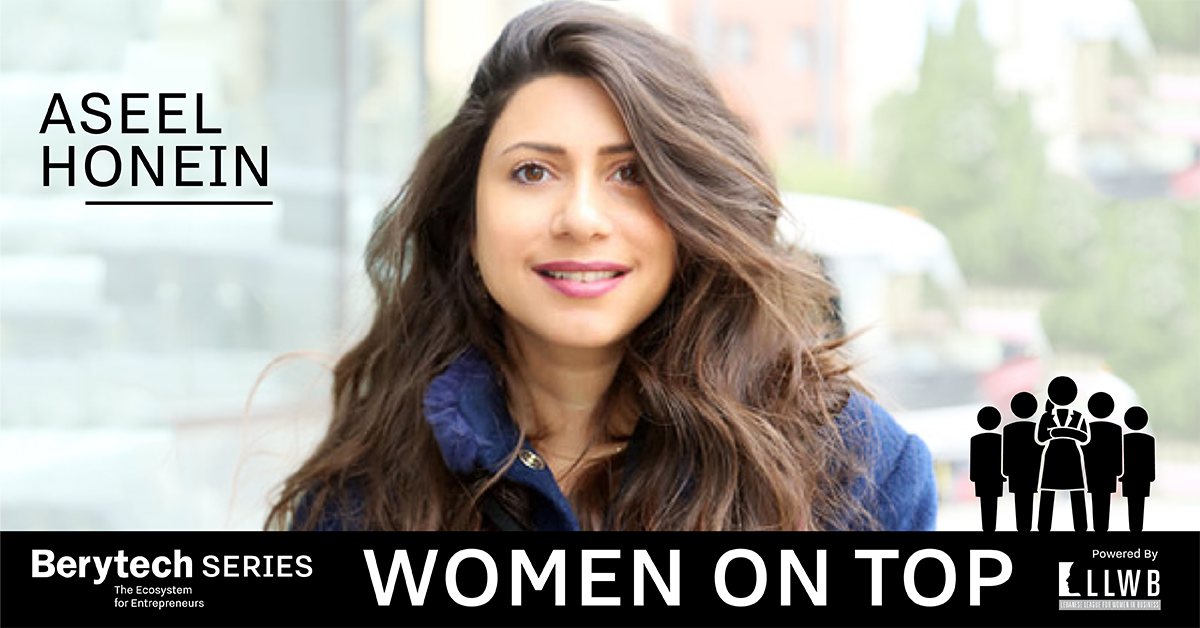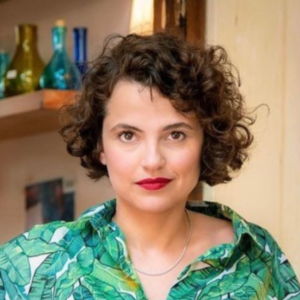
Aseel Honein is an Architect and the founding Managing Partner of Val de Fii sustainable real estate development company based in Lebanon. Through her game-changing venture, she is rethinking development to address socio-cultural and environmental issues through public/private collaborations, a participatory approach
As part of the corporate social responsibility, her practice organizes ‘parallel studio’ workshops that have evolved to become another venture: a design and technology academy for teenagers and young adults that offers much needed hands-on programs addressing gender equity in the workplace and building resilient communities.
She also teaches at the university since 2011 several topics in Architecture. This has cultivated her leadership skills and triggered her interest in persistently seeking the creation of opportunities to expand the role of architects and women in STEAM fields, in order to achieve economic advancement and prosperity in the community.
Aseel received her Bachelor of Architecture degree from the Lebanese American University and master’s degree in sustainable emergency architecture from Universitat Internacional de Catalunya (UIC) in Barcelona. She was granted TechWomen Fellowship at the Lawrence National Berkeley Laboratory in California and Women Entrepreneurs Leadership (WE Lead) Fellowship at the Bush Center in Texas.
The Interview
1.How did you get your business idea?
I am an architect and have always wanted to start my own architecture firm, however, the role of architects is undermined in Lebanon because our towns and cities have evolved without architects or proper planning, infrastructure and urban design. So, I decided to design and build sustainable projects that challenge the zoning, regulations and the typical mindset that contributes to the haphazard urbanization. Val de Fii sustainable development is rethinking the real estate business by adopting open innovation and design participatory approach to allow a real social change and impact.
2. What was the main drive that pushed you to start your business?
At first, it never occurred to me that I would become a Developer and for many years I was dedicated to the practice of architecture and teaching at university. There are many factors that pushed me to step up to this role. As I started my design firm, I noticed (1) how limited and undermined my services were, (2) the lack of professional design build services, (3) the lack of green building best practices, (4) the rise of continuous gentrification of the Koura district – my home town – with horrific development, (5) how people generally hired engineers instead of architects, and (6) that only 18% of women architects were currently practicing in their field. And as I taught advanced architecture courses, I noticed (7) how wide the gap is between academia and the practice is in Lebanon which contributes to the illogical consequences.
The fact that I studied critically the many factors and carefully designed alternatives gave me confidence to start this business.
3. What made you choose this type of business?
I chose social impact real estate development because no other job or position could give me the satisfaction and the opportunity to apply my skills. Some of the reasons that I can list: (1) to combine my entrepreneurship skills with my activism, (2) to offer a better service and product, (3) to practice what I preach in my courses, (4) because I realized only I can make my ideas come to life, and (5) to challenge myself, to position myself and face every fear I got.
4. What was your biggest fear before starting up? How did you overcome it?
I don’t fear failure because I believe that with every loss I will learn valuable lessons. However, I feared that people would not respond well to a game-changing idea. We know people are resistant to change and I worried that they won’t buy in. So, I thought I will be able to get traction from
5. How do you describe your core business activity and what’s the key value you offer to your customer?
I plan, design and build beautiful, green communities. In our sustainable business model,
6. What are the key strategies you use to expand your business?
Generally speaking, our development responds to problems found locally and globally which allow us to implement the process and solutions in various locations. However, some key strategies we use include targeting new customer market by tailoring special offers that address their needs. We keep up with
7. What do you look for when recruiting an employee?
Talent is very important, but I value ethics the most. I look for intrapreneurial, skilled, problem-solvers and find it a great advantage if they have a good sense of humor and good communication/people skills. I am grateful to know that people working on my projects have a sense of pride
8. How many employees do you currently have? How do you describe your management style?
I started my architecture office during times of crisis when there weren’t enough projects to sustain full-time employees. I worked around this issue by partnering with experts and colleagues on a project-basis. I later adopted the same model with the Val de Fii development venture.
While office work relies on outsourcing and collaborations, the construction site team fluctuates from 5 to 20 employees. My management style ranges from democratic (mostly) to assertive (when it’s absolutely justified to get things done) based on the nature of every task. I am transparent, sharing, including, delegating, empowering everyone who works with me. I think of the workplace as a safe space for everyone to contribute and stress-free environment towards high efficiency and productivity. I like to think of every contributing member of the team as a partner or ambassador of the work we do.
9. How do you describe yourself in 3 words?
I was recently called “Private Sector Activist” which I absolutely cherished but I could describe myself as: “Passionate, Authentic and Creative”
10. What’s your favorite part of your business, and why?
In general, I love what I do, and I am constantly challenging myself with new initiatives and projects. My favorite part is that no matter how busy it gets, I have control over my time, which helps me manage my energy and productivity throughout the day. I don’t have a working schedule, yet I am always working… but never complain about it!
11. How do you advertise your business? How do you advertise your product/service?
Of course, we have social media presence and we do advertise with international agencies that promote real estate development. I find the most effective way is our clients recommending our services and products. We have good organic SEO and we are always partnering with and sponsoring community-based initiatives that aim to raise awareness about architecture, smart cities and the environment.
12. If you had one piece of advice to someone just starting out, what would it be?
Don’t start your project without fully understanding your market because it is very competitive and nearly saturated, so if you don’t have some kind of advantage, it will not be sustainable on the long run. Also, timing in social entrepreneurship is everything. It is not important that you are ready to venture, you need to advocate so the market is ready for
13. How do you balance the different aspects of your life? (well-being, family, social and professional)
10 years ago, I made the mistake of burning out and to be frank, work dominated my time and compromised every aspect of my personal life. But I learned my lesson and learned the value of surrounding myself with meaningful friendships and a supportive tribe and positive vibes. Sometimes, it’s not really a balance but I make sure to always have time for myself and quality time with my family and loved ones.
Women On Top Series
Berytech has partnered with the Lebanese League for Women in Business – LLWB, to create ‘Women on Top’ to highlight women entrepreneurs and executives in a series of motivational interviews about their stories, overcoming their own challenges and their entrepreneurial endeavors. Read more.









